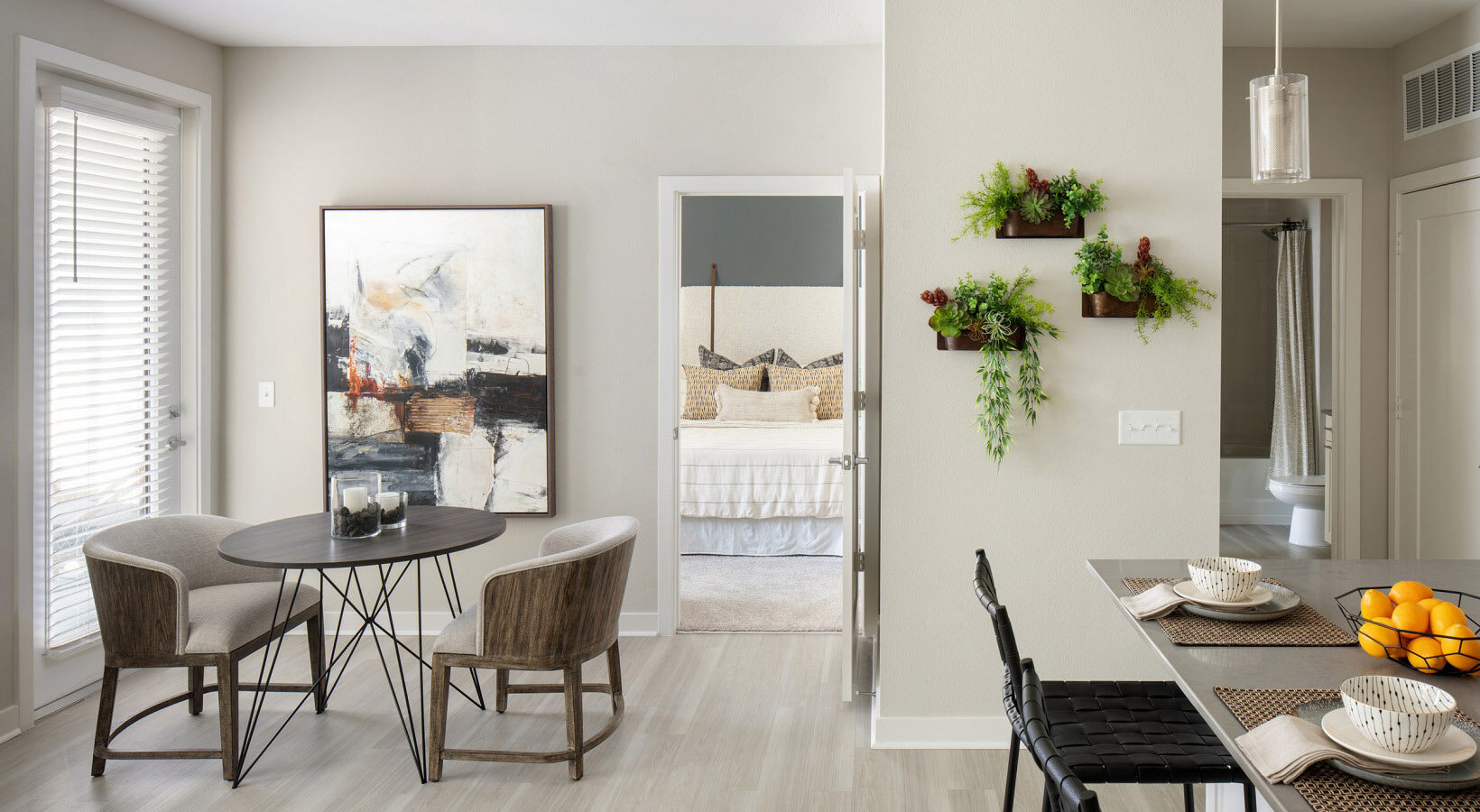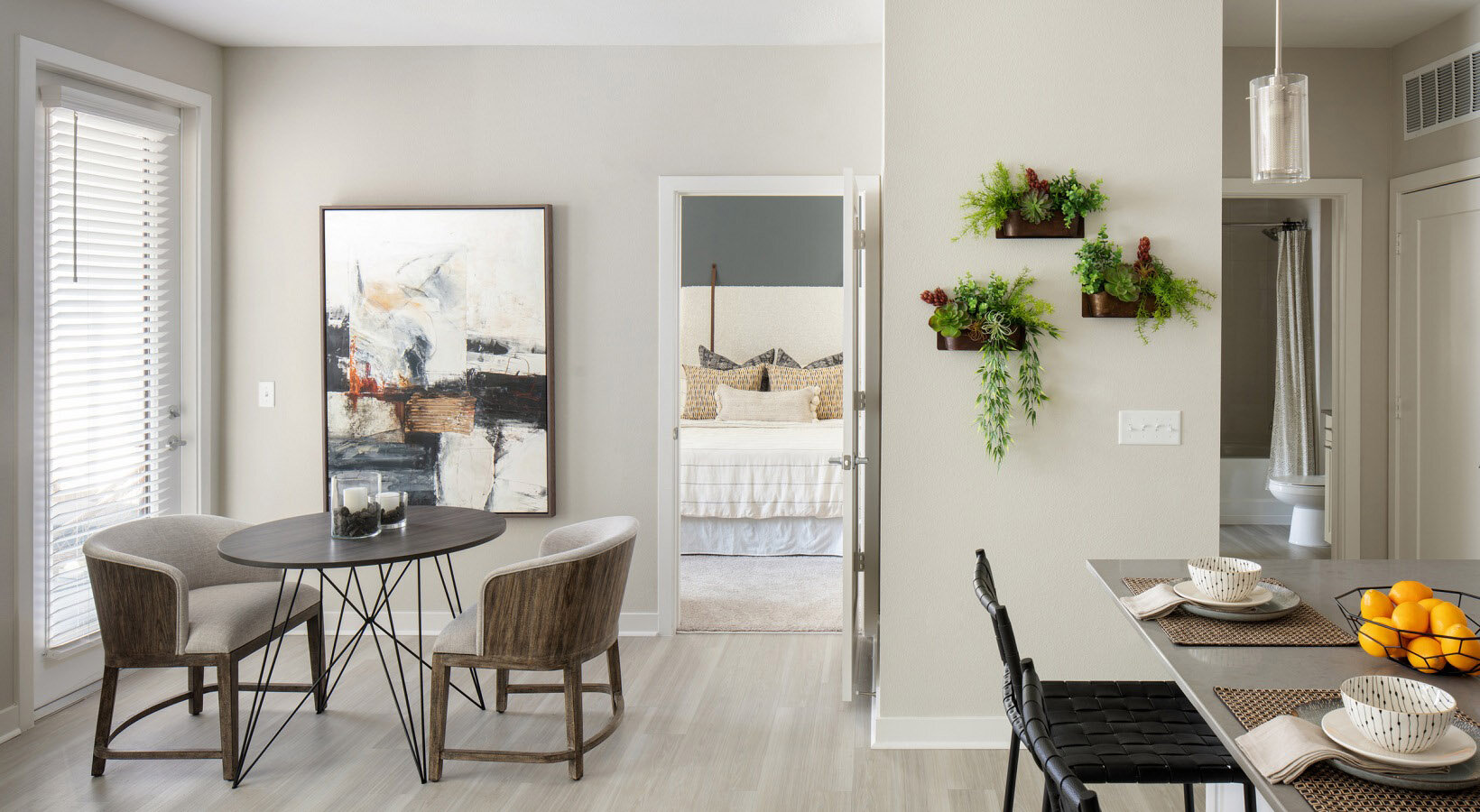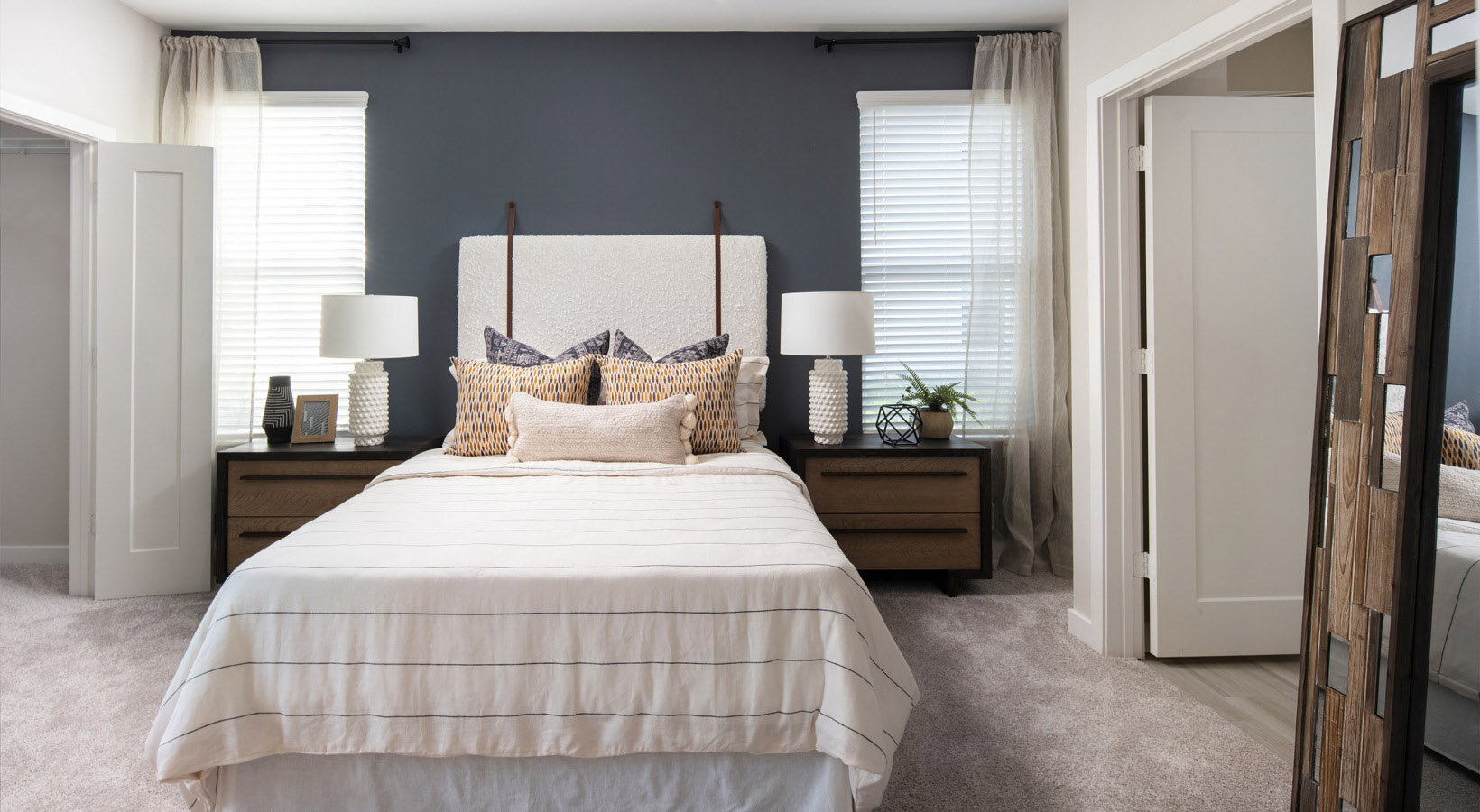Home Zen: How to Add Feng Shui to Your Home
Feng shui is a traditional Chinese practice that’s all about helping people find harmony within their environments. Naturally, since we all strive to feel more at peace and balanced within our surroundings, this philosophy has become a huge focus of interior designers throughout the world. It’s thought that an act as simple as updating your cabinets or rearranging your furniture could lead to a simpler, happier life. How feng shui affects you may vary, but we’re willing to bet it’ll give you at least a mild mood boost!
What Is Feng Shui?
In Chinese, “feng shui” literally translates to “wind” (feng) and “water” (shui), and this gives us some insight into the philosophy’s core tenets. Originally, feng shui centered around finding better ways to live in harmony with nature. In fact, the concept is thought to come from an ancient poem that was meant to draw a picture of the perfect living space:
The winds are mild,
The sun is bright,
The water is clear,
The trees are lush.
Today, though it still has a whole lot to do with the natural world, feng shui is mainly about life in the interior rather than the exterior. Still, we can use traditional concepts to help us build a desirable space that encourages us to thrive and lead a healthy life.
Incorporating Feng Shui into Design
Practically, the art of feng shui comes down to how you place things and what you incorporate to help you achieve a state of harmony and inner peace. Think of it like using ancient principles to optimize an environment to your benefit. The idea is that if you spend your time in the right places, you’ll be able to live a happier, less stressful life.
● Do a Compass Reading — There is a concept in feng shui known as the bagua map or eight trigrams, this idea suggests that every space within your home connects to an aspect of your life — health, career, relationships, etc. Your home’s bagua map is determined by taking a compass reading of your front door. For example, your north bagua area is associated with your career and education, while the south bagua is associated with love, marriage, and prosperity.
Green Ray/Shutterstock.com
● Find the Commanding Position — The commanding position is the spot within your space that’s the farthest from the door but not in its direct line. This means that it’s usually a place diagonal to the door. This is thought to be the place where you’ll be best equipped to deal with things in your life, so you want to make it a central point for a desk, chair or table where you spend much of your time. You don’t want there to be a direct line of sight between the door and your space because it’s believed to increase the speed of energy within your dwelling, which could complicate your ability to deal with things.
● Incorporate the Five Elements — In feng shui, the world is divided up into five elements — wood, fire, earth, metal and water. It is believed that each of these elements is closely linked to a specific feeling or mood, which means they can help you create a specific vibe within your space. Incorporate the right materials based on the feeling you want to achieve, but make sure to focus on balance. These elements rely on one another to exist and create perfect harmony, so don’t overwhelm or underwhelm with any one component.
o Wood. Symbolizing creativity, growth, strength and flexibility, foundational wood can help you create a more aspirational or creative environment. This makes it perfect for the office, workshop, kitchen or any location where you create.
o Fire. Fire is all about excitement and enthusiasm. If you want to create a space that’s bold, commanding and trailblazing, incorporate lots of fire elements. If you don’t have a fireplace, be sure to bring in plenty of candles.
o Earth. Bringing the symbolism of healing, nourishment, support and caring, Earth restores and stabilizes. It is a popular feng shui focus when decorating the bedroom and kitchen. Bring in this element with earth tones and natural imagery.
o Metal. Logic, clarity, dynamic energy and strength are all associated with metal. This is why it’s common to incorporate metal into a home office or workspace, according to the principles of feng shui.
o Water. Symbolizing spirituality and emotion, water is closely linked with freedom, expression and relationships. Add a water element, such as a tabletop water fountain, or incorporate aquatic hues into your feng shui space.
Photographee.eu/Shutterstock.com
● Simplify and De-Clutter — One of the most oft-recommended feng shui tips is to create a clean, de-cluttered environment. This is because it is believed that a less cluttered space equals a less cluttered mind. Stick to earth tones or pure white and avoid any splashy fabrics or patterns. If you’re renovating the kitchen or bathroom, choose white cabinets and neutral-colored paints that won’t overwhelm the space or create an obvious imbalance within the room. Simplifying and minimizing the space by physically removing the clutter can help keep the flow of the room unimpeded, which will lead to more mental clarity.
● Honor Nature — Since the philosophy of feng shui is deeply rooted in how we interact with nature, we want to make sure we make our interiors a part of our exteriors and vice versa. To bring some good, natural vibes into your space, incorporate plants and decorate with earth tones. It’s also important to encourage good air flow so you always have a fresh, revitalizing current within your space. Abundant natural lighting also helps restore your mood and bring you back to earth.
Even if you don’t buy into the energy or mood affecting aspects of feng shui, many of its principles are still very useful in home decorating. At the very least, feng shui will help you practice deliberate design, with ample thought going into the placement of every little odd or end. And that’s never a bad thing!









Leave a Reply
You must be logged in to post a comment.